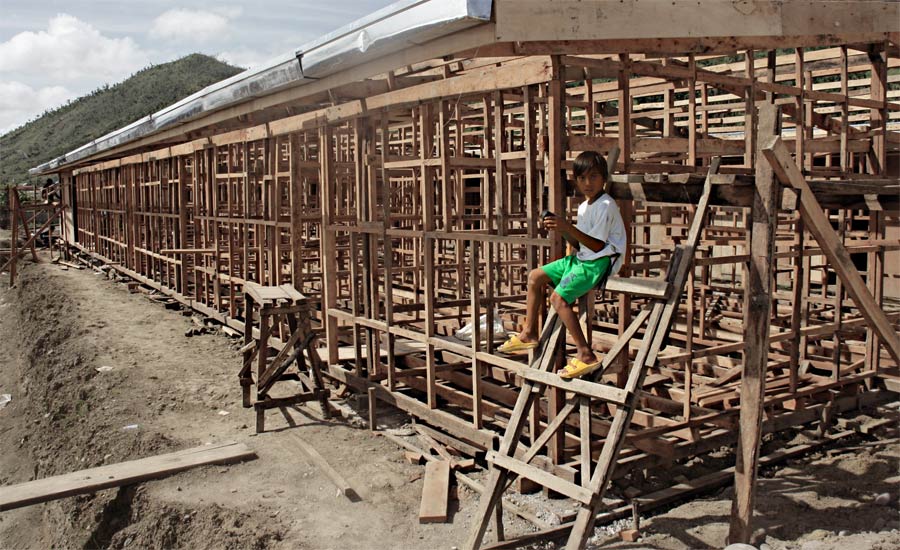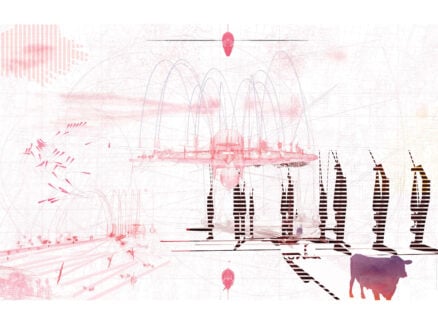
September 22, 2017
This Nonprofit Empowers Natural Disaster Survivors Through Makerspaces
International aid organization Communitere proposes an alternative model for disaster relief by linking communities with vital tools and technology.

When Sam Bloch was a kid, his mom would bring home trash-picked VCRs for him to take apart. Among his DIY creations was a 2-foot-tall, fully functional electromagnetic crane. Soon, his mom was asking him to fix faulty electrical outlets around the house. Bloch says his family never had a lot of money, but he got a lot of satisfaction from his mom’s trust in him. It seems fitting, then, that Bloch would grow up to lead an international organization, Communitere, that offers tools and maker spaces to people who’ve been through disasters. That’s the kind of support that worked for him.
It’s a clear story to tell in retrospect, but Communitere actually took decades to germinate. First, Bloch would grow up to be an electrician, one specializing in the wiring and programming of high-end smart homes.
It was after investing many months and loads of creativity on one such custom home circa 2005 that Bloch had an awakening of sorts. He was presenting his finished work to an uber-wealthy client in Lake Tahoe, excited to show her how to program mood lighting for each room or to text her heater from the driveway. As he spoke, he noticed the client had lost interest. She told Bloch she only expected to use the home one or two weekends a year.
That hit Bloch pretty hard. “I went to the bar that day and was sitting there drinking and contemplating what I was doing with my life,” he says. “I looked up at the TV and saw that the tsunami had happened.”
Bloch quit his job the next day. Within two weeks, he’d packed a bundle of tools and set off for Thailand, with the simple intention of helping a family rebuild their home.
More than a sojourn into disaster recovery, Bloch worked with a variety of volunteer organizations on rebuild projects in Thailand and later, after the massive earthquake, in Haiti. After those years watching the labyrinth of international aid organizations try and often fail to provide lasting solutions, he teamed up with a new generation of volunteers in 2010 to create an alternative model for disaster relief.
They decided to launch maker spaces for local people to design their own recovery plans and build what they, not international relief experts, wanted most. They called the effort Communitere, emphasizing the traditions and desires of people who’d already spent generations cultivating their homes and neighborhoods.
“We’re motivated to give people access to tools and technology,” says Bloch. “The community knows what it needs. There’s dignity in the creative ways they address their issues.”
Bloch’s team focuses first on building collaboration facilities for locals to meet up. In those local HQs, people on the ground can survey what resources are available, and then ask for the tools or training they need to reconstruct their lives their way.
So far, makers in the Philippines, Haiti, Nepal, and Greece have asked Communitere for resources ranging from simple power tools to advanced woodworking equipment, 3D printers, craft supplies, screen printing materials, and full computer labs. They’ve designed village plans, geodesic domes, adobe homes, and composting toilets. They’ve built all manner of furniture, exercise equipment, cell phone chargers, toys, medical devices and even started independent businesses using Communitere’s makerspaces as a launching pad.
Once a Communitere collaboration hub is established, Bloch’s team works toward handing over the leadership and management of the space to community leaders. The locals can then keep the space going or evolve it into something else, like an educational facility or accelerator for entrepreneurs. Last year, Nepal Communitere hosted “the world’s first humanitarian themed Maker Faire,” convening 23 creatively-minded Nepali DIYers.
This fresh approach has caught the attention of social justice workers internationally. The Curry Stone Design Prize, which highlights the work of 100 socially-oriented design efforts around the world annually, honored Communitere last April. Emiliano Gandolfi, Curry Stone’s director, says Communitere stood out because it respects local people as leaders, not the recipients of short-term aid.
“They start reconstruction by listening and building a level of trust,” says Gandolfi. “That will lead to a stronger community in the long run, not just having a roof in the first week.”
This year, Communitere entered Greece, setting up a mobile resource center—a super tricked-out maker van—based in Thessaloniki. Bloch says Greece Communitere is a way to respond to both the economic crisis in Greece and the growing number of displaced people throughout Europe. The work in Greece has been funded, in this early stage, by the American Refugee Committee, but Bloch says much of Communitere’s funding still comes from individuals.
“In the large funding mechanisms of humanitarian work, there isn’t the box yet for the kind of work Communitere does that we can check,” says Bloch. “So we are crowdfunding, but even a little goes a long way. Ten dollars will buy a hammer, but that hammer gets used by hundreds of different people for hundreds of different reasons.”
You may also enjoy “Co-Working Space Ponyride Detroit Unites Entrepreneurship & Making.”










